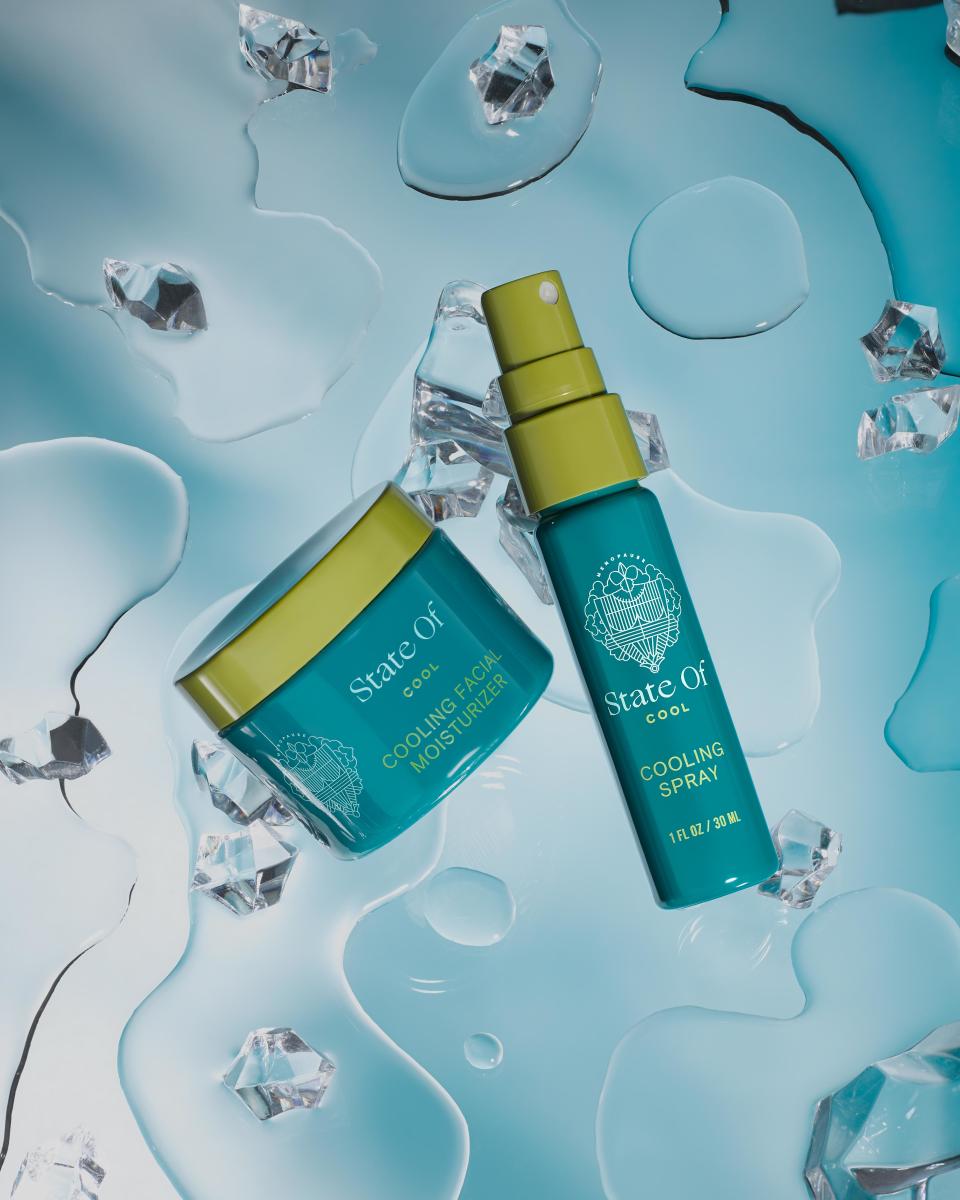First Menopause CEO Summit Held in New York, Presented by State of Menopause

NEW YORK — On Tuesday, World Menopause Day, C-suite executives from an array of menopausal health-related brands gathered at Soho Works in the DUMBO section of Brooklyn, New York, to discuss the future of the women’s health category.
The event was presented by State of Menopause, a women’s health brand founded by former host of TLC’s “What Not to Wear” Stacy London that provides products for all stages of menopause. The panel was hosted by journalist and news anchor Tamsen Fadal.
More from WWD
London gave a keynote speech discussing the current state of the menopausal health category, the importance of expansion and the future of the industry, as 1 billion people are expected to be in menopause in 2025.
“The most important thing that I realized when I started my perimenopausal experience was how lonely I felt, how isolated, how confused, how afraid, and I really didn’t know when I was going through it that there was any help to be had anywhere,” London said. “It was so overwhelming not to know what was happening to me.”
London, along with other panelists, knew this experience wasn’t unique as the menopausal health category has gone widely ignored for many years.

The brands represented on the panel spanned a wide range of menopause-related concerns and solutions. For example, Thermaband, founded by mother-and-daughter duo Debbie and Markea Dickinson, sells a personal monitoring and cooling wearable device for those experiencing hot flashes. Better Not Younger, founded by Sonsoles Gonzalez, provides hair care solutions for women older than 40, while Pause Well-Aging, founded by Rochelle Weitzner, markets skin care products for women in their 40s and beyond. Evernow, founded by Alicia Jackson, Ph.D., is a telehealth platform specifically developed for people going through menopause.
While the brands spanned an array of categories within menopausal health, several key themes came up throughout the day’s conversation, including lack of community, lack of education and access, ongoing censorship and advertising restrictions around women’s health products and the importance of retailer commitment.
For the majority of the founders at the event, their brands started out of necessity.
“Desperation is the mother of necessity,” London said. “Almost every founder in this space has a personal reason for being here.”
For Markea Dickinson, it was not wanting to experience the same type of severe hot flashes and other menopause-related symptoms her mother had. For Kindra founder Catherine Balsam-Schwaber, it was a fibromyalgia misdiagnoses that was actually menopause. For Joylux founder and chief executive officer Colette Courtion, it was about destigmatizing the conversation around vaginal wellness and developing a product that strengthened the pelvic floor.
As the founders and CEOs discussed the impetus behind creating their brands, they discussed the importance of education, clinical research and legislation when it comes to menopausal health. For Alloy, a platform that provides menopausal health care, providing education is key. “The number-one way to do it is volume, intensity, frequency and accuracy,” said Alloy CEO and cofounder Anne Fulenwider. “We have found at Alloy that our medically vetted, scientifically backed information on our site is the most trafficked.”
Other brands like Evernow and Bonafide, a natural women’s supplement, have invested in data and research to ground their products and messaging. Bonafide CEO and cofounder Michael Satow noted the brand will have four ongoing clinical trials by the end of the year.
“We’re very research focused so we were spending, even this year, millions of dollars on researching these drug alternatives,” Satow explained. “We have now more than 11,000 physicians across the country that are mostly mainstream gynecologists that are actively recommending our products to their patients, based really only on the data around those products.”
While brands have committed to creating innovative products, providing educational content and investing in research, many panelists noted the struggle to market menopause-related brands due to censorship, advertising restrictions and general disinterest from retailers. For Womaness co-CEOs and cofounders Sally Mueller and Michelle Jacobs, being accessible in retailers is key for offering women health solutions. Furthermore, several of these brands have faced restrictions around using words like vagina, which is often restricted in Google ads and censored on Meta platforms, making it difficult for menopause products to be promoted online.
However, as the conversation around menopausal health continues to expand, more brands are entering the wellness market.
“I think that more voices, more choices gives women more awareness that these solutions even exist. I’m sure that every one of us on this panel can tell the story of our customers coming to [us] saying, ‘I didn’t know anything like this existed. No one ever told me that I could have these kinds of solutions,’” Balsam-Schwaber said. “If you think about the collective number of consumers that we have touched, we are just scratching the surface of getting women the answers and the solutions that they need.”

